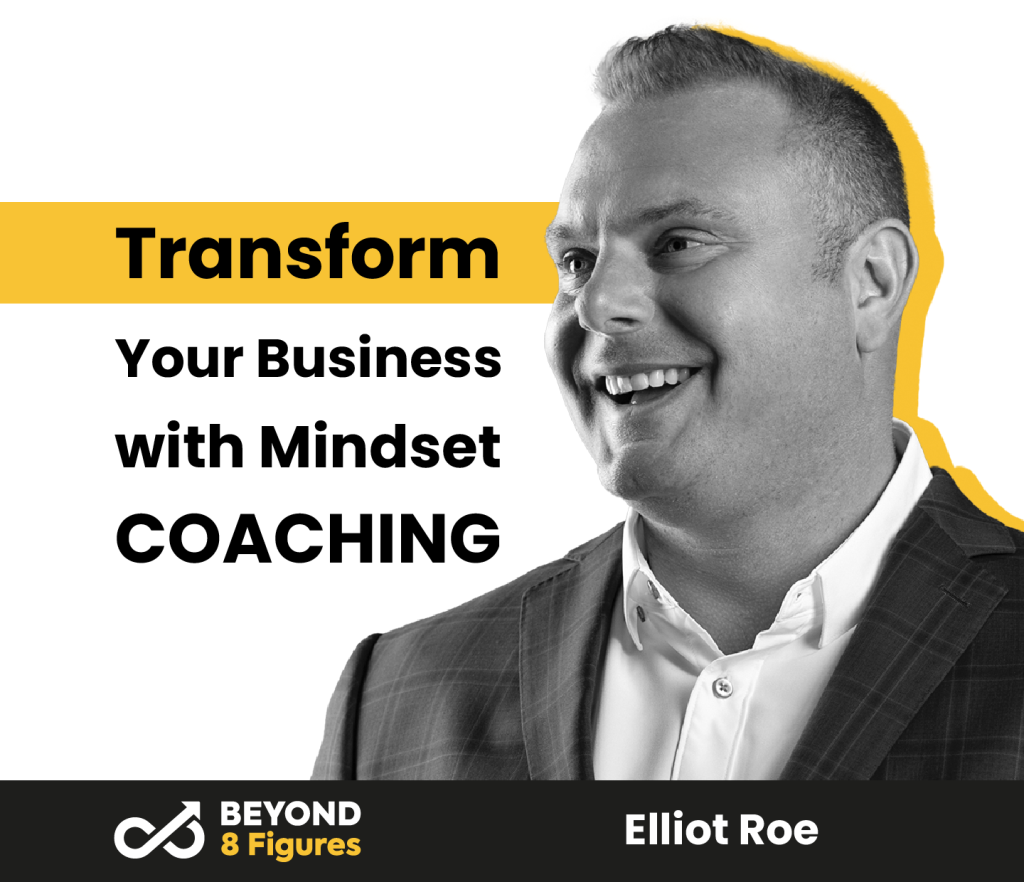A mindset business coach is a professional who helps individuals—entrepreneurs, business leaders, freelancers, and anyone facing business challenges—transform their thinking to achieve personal and professional success. Unlike traditional business coaches who focus on strategic and operational aspects, a mindset business coach digs deeper into the mental and emotional frameworks that guide decision-making, problem-solving, and leadership.
Mindset business coaching is rooted in the belief that mindset shapes behavior, and behavior drives results. The right mindset can lead to personal growth, resilience in the face of challenges, and sustainable business success. By addressing limiting beliefs, negative thought patterns, and self-doubt, a mindset business coach helps individuals align their mindset with their business goals.

Why Is Mindset Important for Business Success?
Mindset plays a critical role in determining the success of individuals in business. A mindset shapes how we perceive challenges, setbacks, and opportunities. In business, where obstacles are frequent and the competition is fierce, having the right mindset can make the difference between thriving and failing. Many successful entrepreneurs and leaders credit their achievements not solely to their skills or strategies but to their mental resilience and growth-oriented thinking.
Understanding Mindset
Mindset refers to the established set of attitudes held by someone. There are two primary types of mindsets:
- Fixed Mindset: People with a fixed mindset believe that their abilities and intelligence are static. They tend to avoid challenges because they fear failure, which they view as a reflection of their limitations. For example, a business owner with a fixed mindset might shy away from exploring new markets because they fear the risk of failure.
- Growth Mindset: Individuals with a growth mindset believe that they can develop their abilities and intelligence through hard work, learning, and perseverance. They see challenges as opportunities for growth and are more likely to take calculated risks. For instance, a business leader with a growth mindset is more likely to embrace technological advancements, understanding that adaptability and continuous learning are key to success.
Dr. Carol Dweck, a Stanford University psychologist, coined these terms and highlighted how a growth mindset is associated with greater achievements. In the business world, adopting a growth mindset can lead to innovations, improved decision-making, and greater success.
The Connection Between Mindset and Business
In business, success is often determined by one’s ability to navigate challenges. While technical skills and knowledge are important, they are not enough on their own. Business owners and leaders need to possess a mindset that allows them to:
- Overcome setbacks: Whether it’s a failed product launch or a missed sales target, entrepreneurs with a growth mindset view these failures as learning experiences rather than definitive losses.
- Adapt to changes: The business landscape is always changing, from technological advancements to market disruptions. A growth mindset fosters adaptability, enabling businesses to evolve with the times.
- Innovate: A willingness to learn and experiment is crucial in innovation. Those with a growth mindset are more open to exploring new ideas, creating products, or implementing business strategies that could set them apart from competitors.
Real-Life Examples
Many prominent business figures credit their success to mindset shifts. Elon Musk, for example, has faced numerous setbacks in his ventures, from the early failures of SpaceX to the production delays at Tesla. Rather than allowing these challenges to defeat him, Musk’s growth-oriented thinking has enabled him to keep pushing forward, ultimately leading to monumental success.
Another example is Sara Blakely, the founder of Spanx. Blakely often speaks about how adopting a growth mindset helped her navigate the difficulties of starting her business from scratch. She reframed her fear of failure as an opportunity to learn, which allowed her to take bold risks that eventually made Spanx a billion-dollar brand.

What Does a Mindset Business Coach Do?
A mindset business coach plays a pivotal role in helping individuals transform the way they think, not just about their businesses but also about themselves. By working closely with clients, these coaches enable them to identify mental barriers and provide tools to foster a growth-oriented mindset. Their work goes beyond just giving advice or creating business strategies—they work on the mental frameworks that influence business decisions, leadership, and personal success.
Role and Responsibilities
A mindset business coach helps clients:
- Identify Limiting Beliefs: These are ingrained beliefs that hold individuals back, such as “I’m not good enough” or “I can’t handle failure.” A coach helps uncover these mental blocks and works on reframing them into positive, empowering beliefs.
- Provide Tools to Shift Thinking Patterns: Techniques such as cognitive behavioral approaches, meditation, journaling, and positive affirmations are often employed to shift clients’ thinking from negative self-talk to more constructive and empowering thoughts.
- Goal Setting: A mindset coach works with clients to develop clear, attainable goals for their personal and business growth. These goals are often broken down into actionable steps, with the coach holding the client accountable for achieving them.
- Accountability and Support: The coach acts as both a guide and a support system, holding clients accountable for their actions while providing encouragement during difficult times. This can be particularly valuable when clients face setbacks, as the coach helps them maintain a positive outlook and keep moving forward.
Areas of Focus
A mindset business coach typically focuses on several key areas of personal and professional growth:
- Confidence Building: Many individuals, even those running successful businesses, struggle with confidence. A mindset coach works to help clients see their true potential and build a sense of self-assurance that allows them to take bold actions in their business.
- Overcoming Fear of Failure: Fear of failure is a common obstacle that holds many people back. A mindset coach helps clients confront this fear, reframing it as a natural part of growth. The goal is to create a mindset where failure is seen as a stepping stone rather than an end point.
- Leadership Skills: Leadership is not just about managing others; it’s also about managing oneself. A mindset coach helps clients develop emotional intelligence, self-awareness, and resilience, all of which are critical for effective leadership.
- Resilience and Mental Toughness: In business, resilience is key. A mindset business coach helps clients develop the mental toughness necessary to navigate setbacks, adapt to change, and stay focused on long-term goals.
Case Study: Shifting Mindset for Business Growth
Consider the example of a tech startup founder who was struggling to grow her company. Despite having a solid business plan and talented team, her personal fears and insecurities were preventing her from making critical decisions—like seeking investment or expanding into new markets. After engaging with a mindset business coach, she was able to identify her fear of failure as the root cause of her indecision. The coach helped her reframe this fear, shifting her perspective from focusing on potential failure to seeing these challenges as opportunities for learning. Within a year, her company had doubled in size, and she attributed much of this success to her mindset shift.

What Makes a Mindset Business Coach Different from Other Coaches?
Mindset business coaches stand out from other types of coaches because their focus is on internal transformation, rather than simply providing business strategies or life advice. While traditional business coaches might focus on operations, scaling, or marketing, and life coaches focus on personal development, a mindset business coach bridges both worlds by addressing the mental frameworks that drive personal and business success.
Mindset vs. Traditional Business Coaching
Traditional business coaching is usually centered on practical aspects like:
- Business plans
- Marketing strategies
- Financial planning
- Performance optimization
These elements are essential for any business, but without the right mindset, even the best strategies can fall short. A mindset business coach focuses on the mental and emotional obstacles that might prevent an individual from implementing these strategies effectively.
For example, imagine a business owner who has been advised to expand their operations by a traditional business coach. However, the owner is hesitant due to a deep-seated fear of risk. A mindset business coach would work with the owner to understand and shift that fear, helping them move forward with confidence. This internal transformation allows the business strategies suggested by a traditional coach to be carried out more effectively.
Mindset Business Coach vs. Life Coach
While a life coach helps individuals achieve personal goals and improve areas like relationships, health, and overall life satisfaction, a mindset business coach focuses specifically on business-related mindset challenges. A life coach may help a client overcome general self-doubt, but a mindset business coach goes further, targeting doubts and fears that are specific to the business environment.
Some differences include:
- Goal Orientation: Mindset business coaches are often more goal-driven and action-oriented, working with clients to achieve specific business outcomes, whereas life coaches may focus on broader life satisfaction and well-being.
- Business Focus: A mindset coach applies personal development concepts directly to business situations—whether it’s decision-making, leadership, or managing stress in high-stakes environments.
Balancing Mindset Shifts with Practical Business Actions
One of the key distinctions of a mindset business coach is their ability to help clients balance personal growth with business success. For example, while working on a client’s confidence and mental resilience, a mindset coach will also guide them in applying this new mindset to concrete business actions such as:
- Taking calculated risks.
- Delegating effectively.
- Improving communication with teams or stakeholders.
This combination of internal work and external business actions creates a powerful synergy that not only improves the client’s personal development but also leads to tangible business improvements.
A Case Study in Differentiation: The Example of an Entrepreneur
Let’s consider the example of an entrepreneur who, despite having excellent business strategies from a traditional coach, still struggles with imposter syndrome. This deep feeling of inadequacy prevents them from fully embracing opportunities or scaling their business.
In this scenario, a mindset business coach would:
- Work with the entrepreneur to uncover the root causes of this imposter syndrome.
- Reframe their thoughts around success and personal value.
- Help them develop techniques for self-validation and confidence building.
- Guide them to apply this mindset shift by stepping into leadership roles and making bold decisions for their business.
This mindset transformation allows the entrepreneur to implement the practical business strategies with renewed energy and confidence, ultimately leading to business growth.